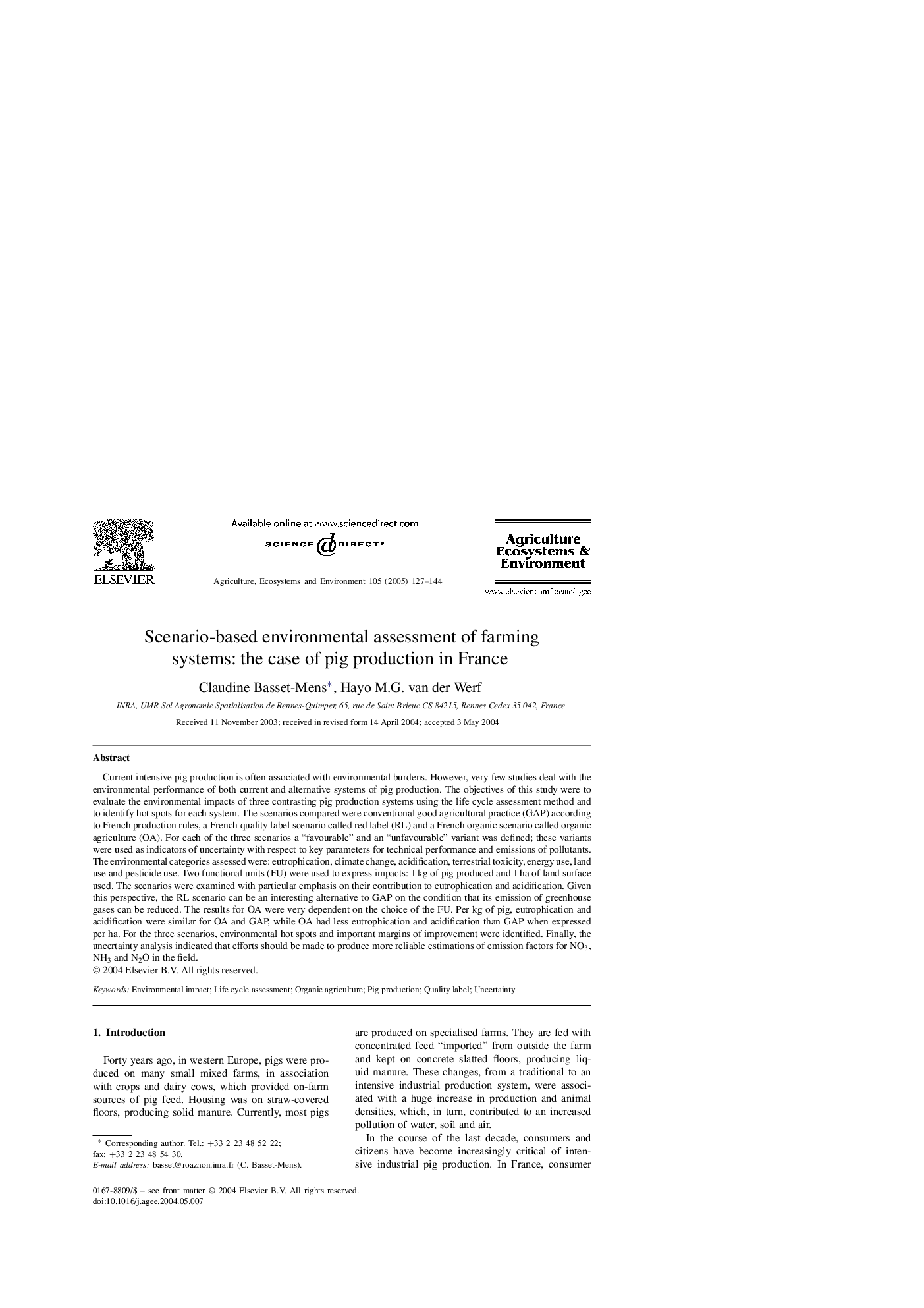| Article ID | Journal | Published Year | Pages | File Type |
|---|---|---|---|---|
| 8970884 | Agriculture, Ecosystems & Environment | 2005 | 18 Pages |
Abstract
Current intensive pig production is often associated with environmental burdens. However, very few studies deal with the environmental performance of both current and alternative systems of pig production. The objectives of this study were to evaluate the environmental impacts of three contrasting pig production systems using the life cycle assessment method and to identify hot spots for each system. The scenarios compared were conventional good agricultural practice (GAP) according to French production rules, a French quality label scenario called red label (RL) and a French organic scenario called organic agriculture (OA). For each of the three scenarios a “favourable” and an “unfavourable” variant was defined; these variants were used as indicators of uncertainty with respect to key parameters for technical performance and emissions of pollutants. The environmental categories assessed were: eutrophication, climate change, acidification, terrestrial toxicity, energy use, land use and pesticide use. Two functional units (FU) were used to express impacts: 1Â kg of pig produced and 1Â ha of land surface used. The scenarios were examined with particular emphasis on their contribution to eutrophication and acidification. Given this perspective, the RL scenario can be an interesting alternative to GAP on the condition that its emission of greenhouse gases can be reduced. The results for OA were very dependent on the choice of the FU. Per kg of pig, eutrophication and acidification were similar for OA and GAP, while OA had less eutrophication and acidification than GAP when expressed per ha. For the three scenarios, environmental hot spots and important margins of improvement were identified. Finally, the uncertainty analysis indicated that efforts should be made to produce more reliable estimations of emission factors for NO3, NH3 and N2O in the field.
Related Topics
Life Sciences
Agricultural and Biological Sciences
Agronomy and Crop Science
Authors
Claudine Basset-Mens, Hayo M.G. van der Werf,
